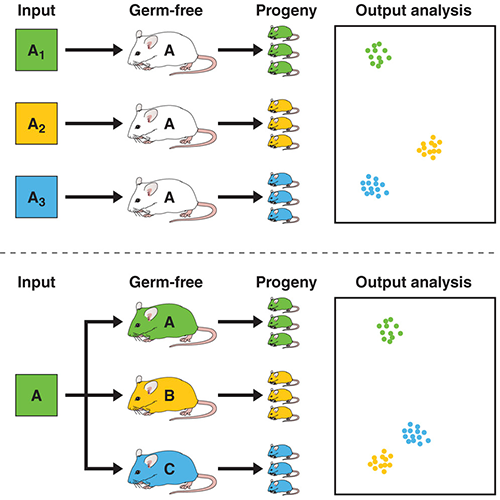
Source: Graphical Abstract. Khan et al., 20191
A recent article in Cell Reports demonstrates how polymorphic host genes shape the intestinal microbiota1. Mice that were colonized with a given composition of microbiota (the "input") were allowed to produce G1 offspring, whose resulting microbiomes were sequenced to determine the "output". This multi-faceted study analyzes how host genetics influence the output microbiota in genetically-identical and genetically-diverse mouse models. The publication also offers an excellent analysis of how genetic background and adaptive immune system components such as major histocompatibility complexes (MHCs) play a role in shaping the microbial composition of the host.
Germ-free mouse models played a key role in this study because they could be colonized with a distinct microbiota and subsequently monitored to better understand gene function and development. When choosing a germ-free model for your study, some aspects to consider are the desired study length, breeding performance, genetic background, and availability of controls at other health standards.






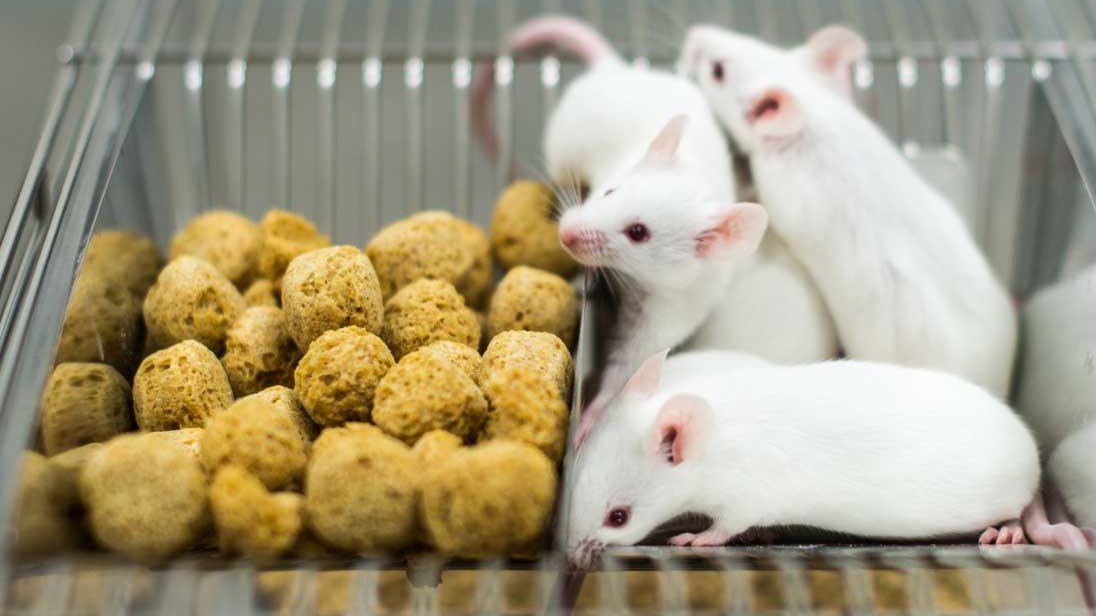









.jpg)

.jpg)
.jpg)
.jpg)
.jpg)
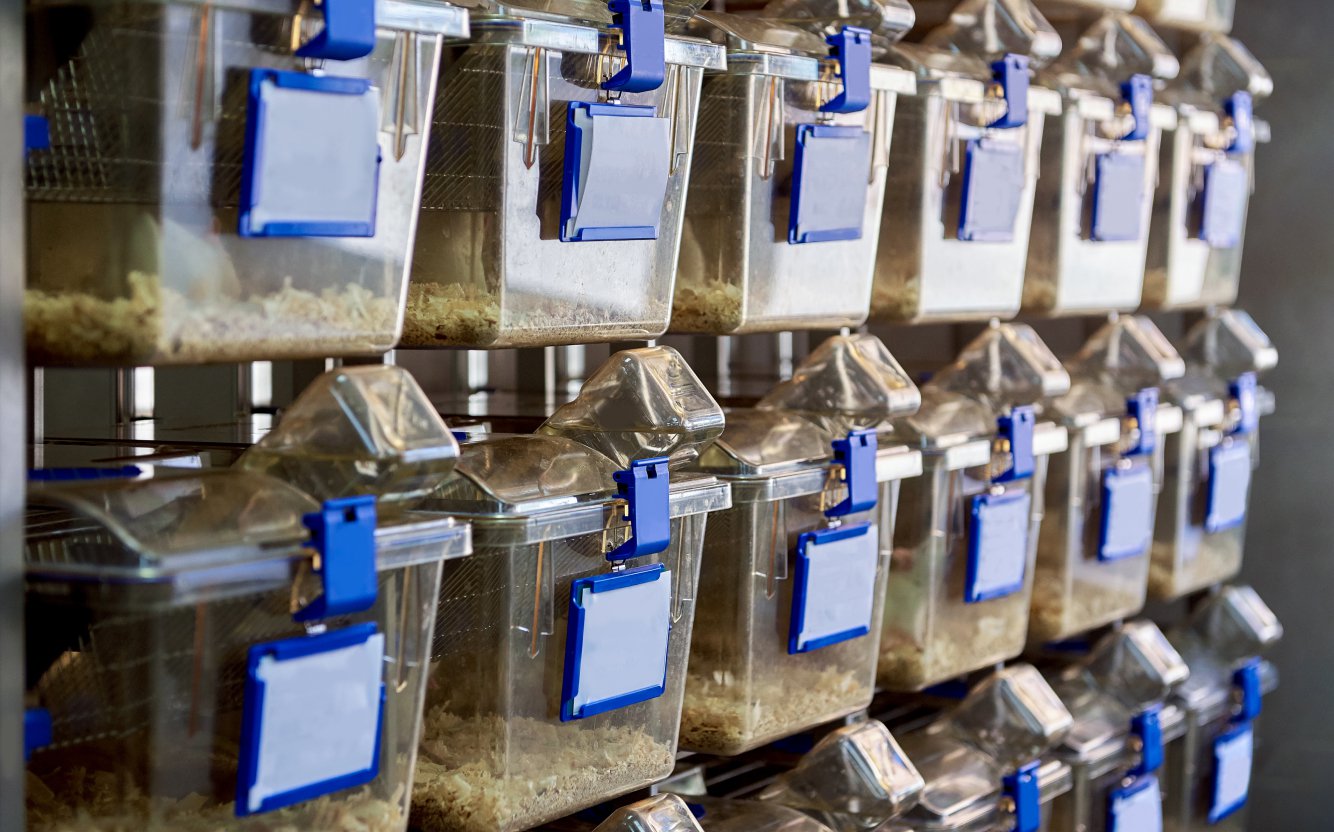

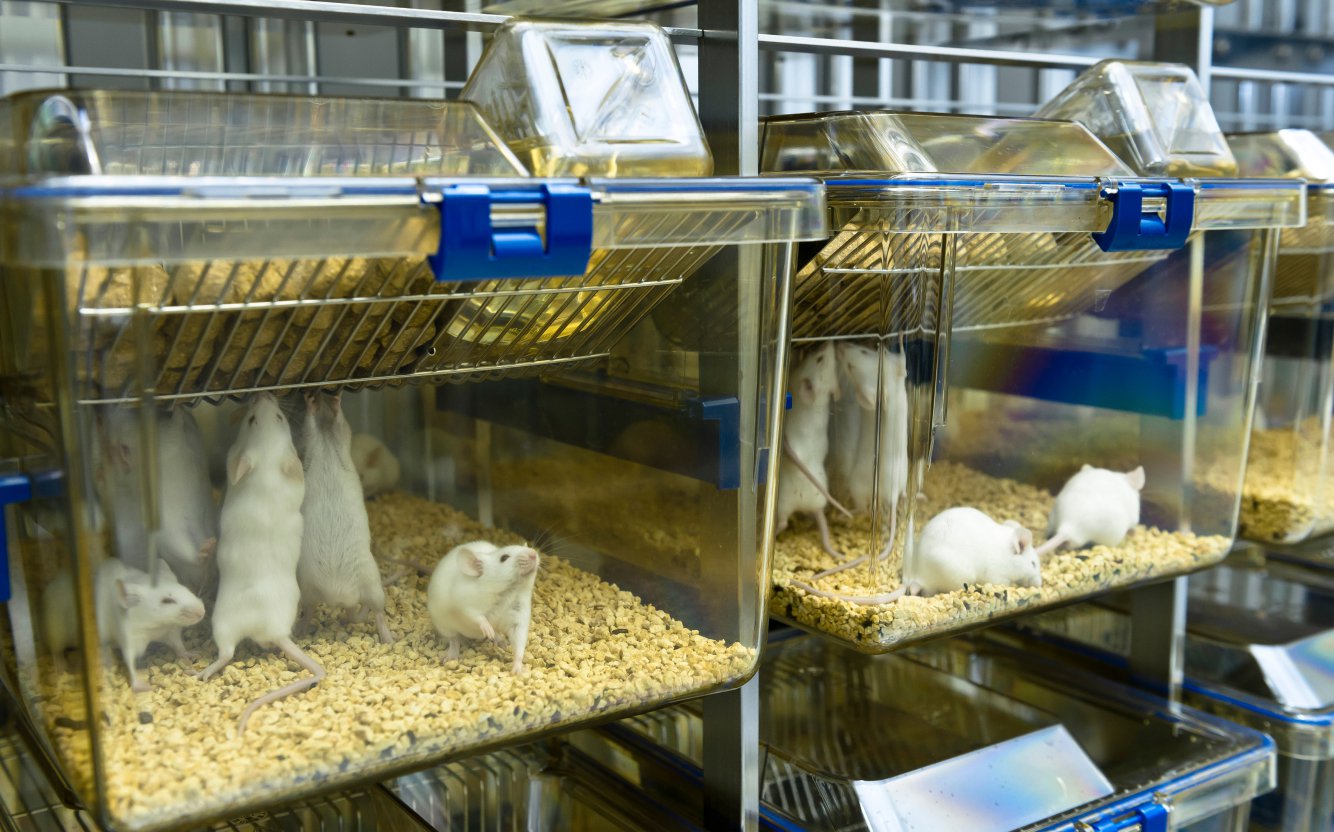


.jpg)


.jpg)
.jpg)

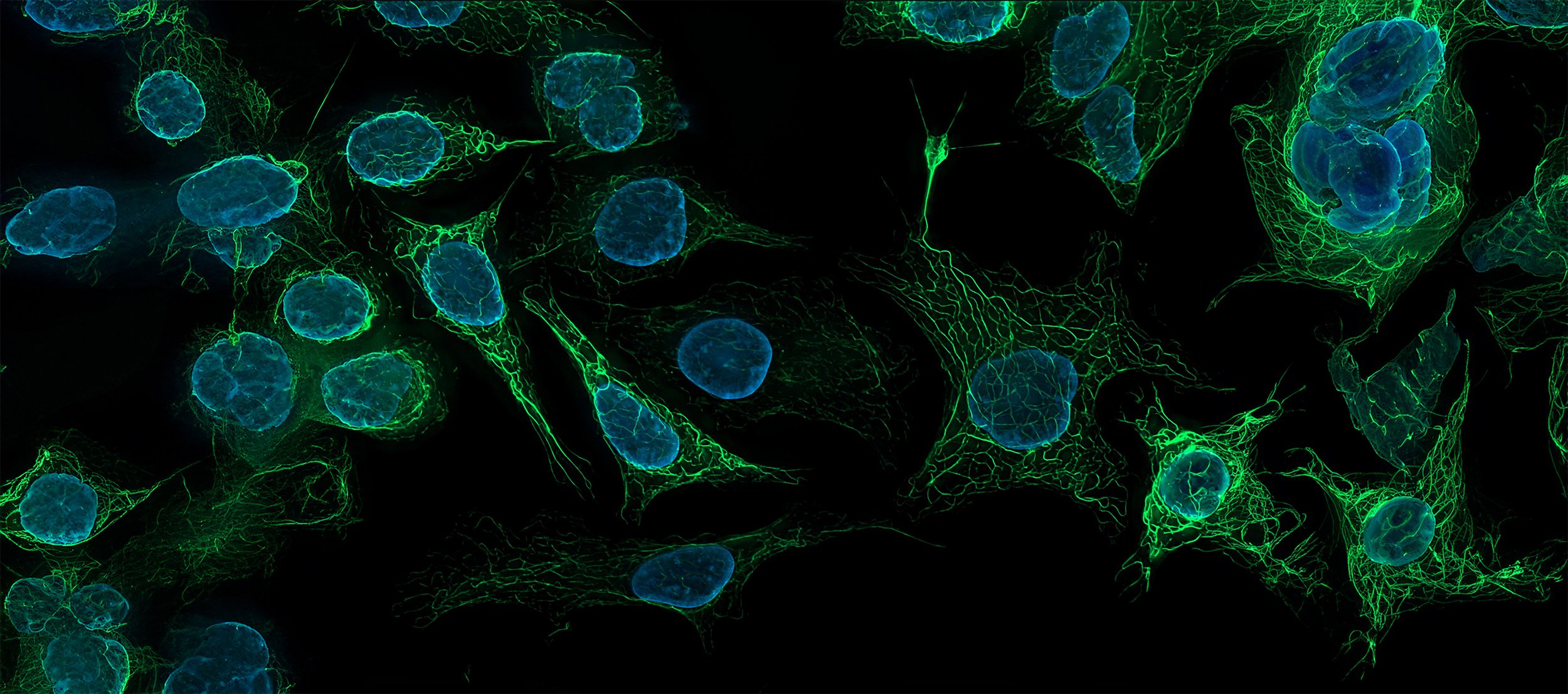
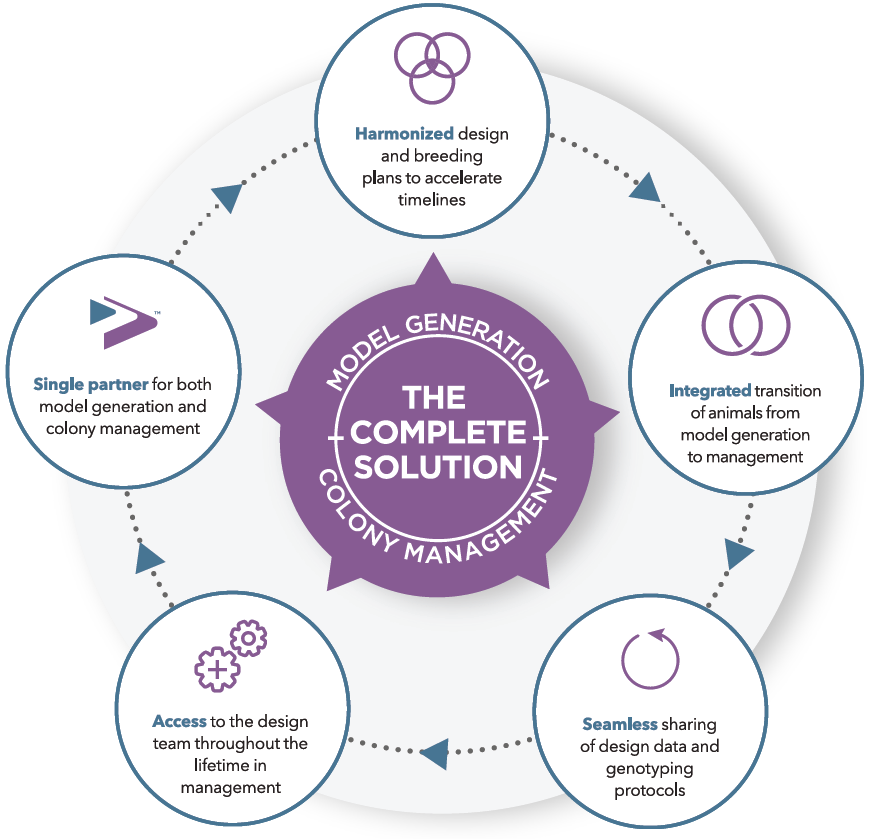

.jpg)

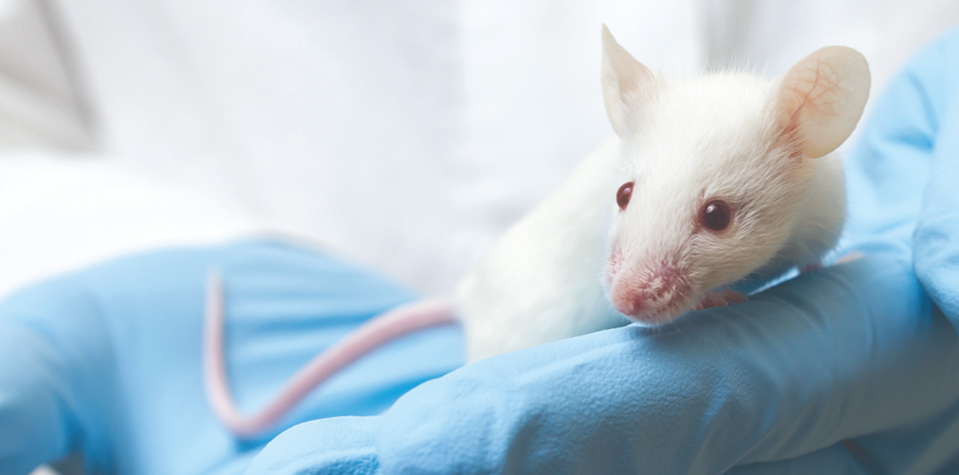

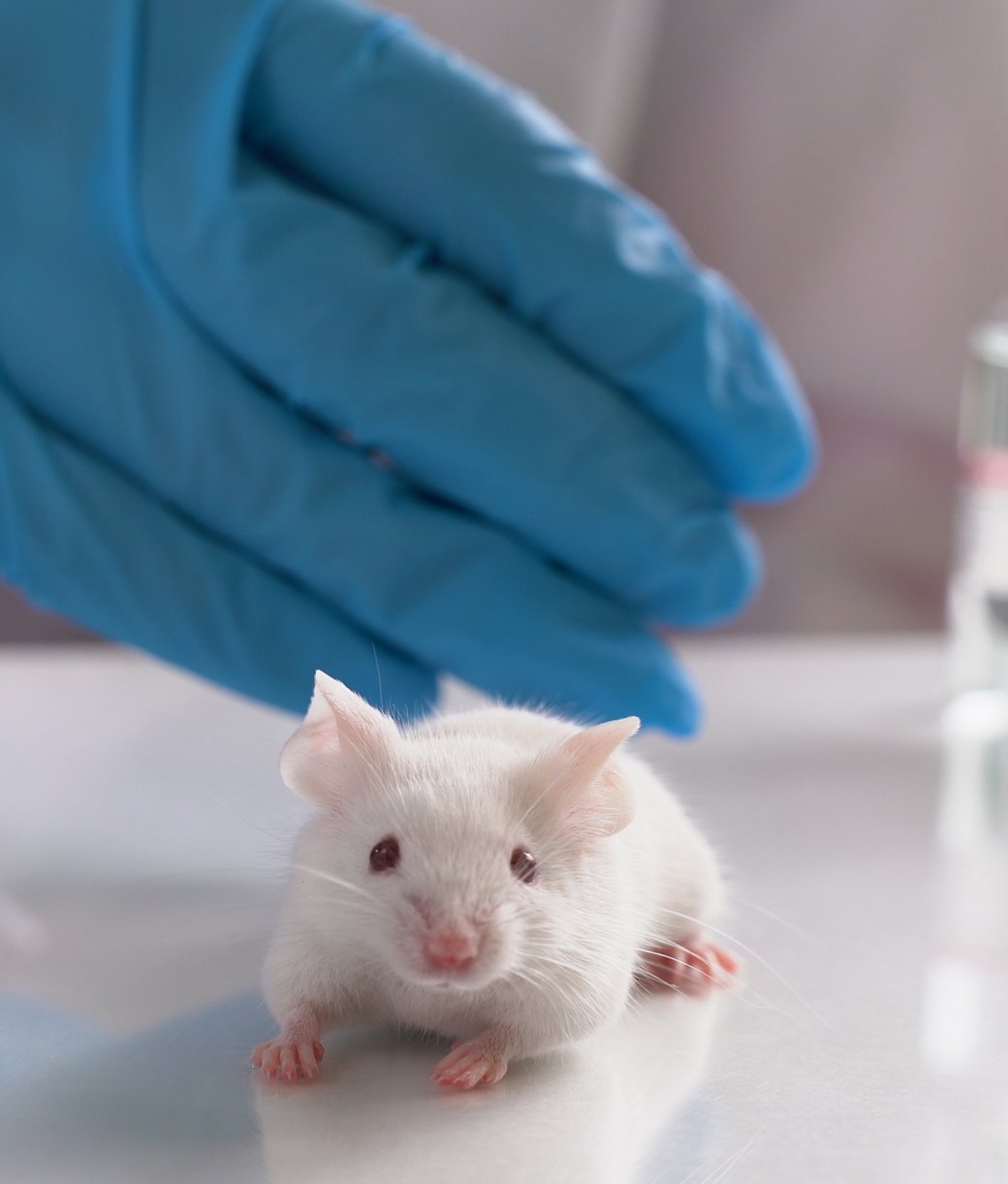

.jpg)

.jpg)




